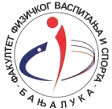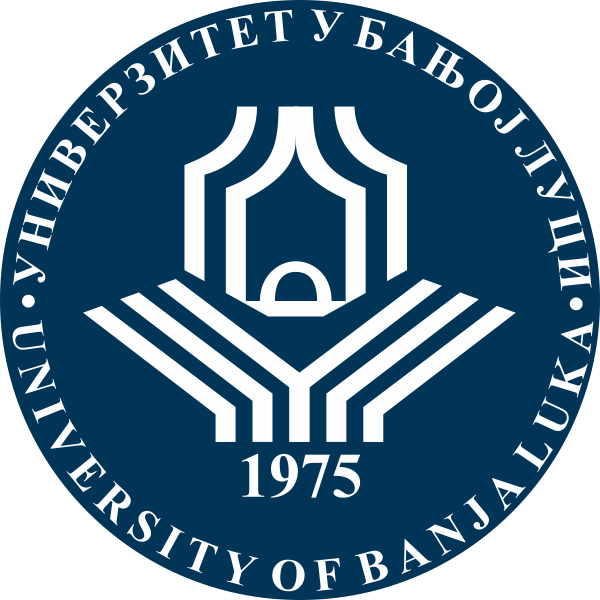SportLogia
Vol. 8, Issue 1, June 2012.
PERCEPTIONS OF PEDAGOGICAL PRACTICES OF PHYSICAL EDUCATION TEACHERS IN PORTUGAL SINCE THE 1970S
António Gomes Ferreira1 and José António Moreira1
1Faculty of Psychology and Educational Sciences, University of Coimbra, Portugal
2Department of Education and Distance Learning, Open University, Portugal
ORIGINAL SCIENTIFIC PAPER ORGINALNI NAUČNI ČLANAK
doi: 10.5550/sgia.120801.en.021F
COBISS.BH-ID: 2934296
UDK: 371.14+371.12:Š796/799
Summary
The aim of this study is to analyse how Physical Education teachers in Portugal organise their lessons, taking into consideration the most valued lesson models. Moreover, we sought to understand the existing relationship between those practices, their experiences, attitudes and the influence of training schools, ie, the existing relationship between pedagogical work and a habitus, seen as a product of history and a defining principle of group and individual practices learned empirically in specific contexts. Based on a qualitative methodology, the study focused on a group of fifteen teachers with varied degrees in Physical Education, who graduated from some of the most distinguished schools in Portugal, for e.g., the National Institute of Physical Education, Colleges of Physical Education, and some of the most famous Portuguese faculties in this field of study established in the early 1990s. We concluded that these teachers defend the use of well structured classes, based on strict planning, not neglecting students’ motivations. Moreover, that the existence of different pedagogical practices (and attitudes) is possible due to different training, to the specific historical context and different experiences, personalities and motivations of each teacher. These differences suggest, therefore, there is a relationship between pedagogical practices and a habitus, which means experiences acquired in different cultural, political and educational environments.
Key words: pedagogical practices, physical education; teachers.
References
Arends, R. (1995). Aprender a ensinar ŠLearning to teach]. Lisboa, Portugal: Editora McGraw-Hill.
Bardin, L. (1977). L´analyse de contenu ŠThe content analysis]. Paris, France: PUF.
Bourdeiu, P. (2005). Razões práticas: sobre a teoria da acção ŠPractical reasons: about the theory of action]. 6th ed. Campinas, Portugal: Papirus.
Borges, C. (2003). O professor de Educação Física e a construção do saber ŠThe physical education teacher and the construction of knowledge]. Campinas, Portugal: Papirus.
Brás, J. (1996). Metamorfoses na formação de professores de Educação Física ŠMetamorphoses in training teachers of Physical Education]. Boletim SPEF, 14, 47−54.
Cortesão, M. (2010). Clima Escolar, Participação Docente e Relação entre os Professores de Educação Física e a Comunidade Educativa ŠSchool Climate, Teacher Participation and Relationship between Physical Education Teachers and the Educational Community](Unpublished master's thesis). Universidade de Coimbra, Faculdade de Psicologia e Ciências da Educação.
Ferreira, A. G. (2002). A Educação Física no ensino secundário durante o Estado Novo ŠPhysical Education in Secondary Education during the New State]. Revista Portuguesa de Pedagogia,1, 2 e 3(36), 221−240.
Ferreira, A. G. & Morreira, J. A. (2011). The Socio-professional Status of Physical Education Teachers in Portugal: A Qualitative Approach. SportLogia, 7(1), 1−19. doi: 10.5550/sgia.110701.en.001G ![]()
Krippendorf, K. (1980). Content analysis. London, UK: Sage.
Lahire, B. (2002). O homem plural: os determinantes da acção ŠThe man plural: the determinants of the action]. Petrópolis, Portugal: Vozes.
Lovisolo, H. (1995). Physical Education: A arte da mediação ŠPhysical Education: The art of mediation]. Rio de Janeiro, Brazil: Sprint.
Martins, I. (2010). Clima de Escola, Participação e Identidade- Um olhar sobre a discipline e professor de Educação Física ŠSchool Climate, Participation and Identity-A look at the disciplina and physical education teacher] (Unpublished master's thesis). Universidade de Coimbra, Faculdade de Psicologia e Ciências da Educação.
Miles, M. & Huberman, A. (1994). Drawing valid meaning from qualitative data: toward a shared craft. Educational Researcher, 13(5), 20−30. doi: 10.2307/1174243 ![]() ; doi: 10.3102/0013189X
; doi: 10.3102/0013189X ![]()
013005020 ![]()
Moreira, J. A. (2011). Perspectiva Histórico-Contemporânea da Educação Física em Portugal: A Formação Profissional Docente ŠHistorical and Contemporary Perspective of Physical Education in Portugal: The Teacher Training]. Coimbra, Portugal: CEIS 20.
Moreira, J. A. & Ferreira, A. G. (2011). A Identidade Socioprofissional dos Professores de Educação Física em Portugal ŠOccupational identity of Teachers of Physical Education in Portugal]. Revista e-curriculum. 7(2). 1−21.
Pereira, P. (1999). Os processos de pensamento dos Professores de Educação Física com e sem experiência docente ŠThe thought processes of the Physical Education Teachers with and without teaching experience]. Ludens, 3(16), 35−40.
Pereira, P. (2002). A planificação dos Professores em Educação Física: Alguns contributos para o seu estudo ŠThe planning of Teachers in Physical Education: Some contributions to its study]. Horizonte, 92, 14−18.
Pierron, M. (1984). Didactique et Méthodologie des Activités Physiques ŠDidactics and Methodology of Physical Activities]. Liège, Belgium: Université de Liège.
Rezer, R. (2007). Relações entre conhecimento e prática pedagógica no campo da Educação Física: pontos de vista ŠRelations between knowledge and pedagogical practice in the field of physical education: views]. Motrivivência, 28(19), 38−62.
Rodrigues, J. (1994). Fatores condicionantes e limitativos da organização das sessões de Educação Física e Desporto ŠFactors affecting and limiting the organizing sessions of Physical Education and Sport]. Ludens, 4(14), 19−23.
Sanchotene, M. & Molina Neto, V. (2010). Práticas pedagógicas: entre a reprodução e a reflexão ŠPedagogical practices: between reproduction and reflection]. Revista Brasileira Ciências Esporte, 3(31), 59−78. doi: 10.1590/S0101-32892010000300005 ![]()
Silva, M. (2005). O habitus profissional: o objeto dos estudos sobre o ato de ensinar em sala de aula ŠThe professional habitus: the object of studies on the act of teaching in the classroom]. Revista Brasileira de Educação, 29, 52−63.
Vala, J. (1986). A análise de conteúdo ŠThe content analysis]. In A. SILVA and J. PINTO (Eds.), Metodologia das Ciências Sociais. Porto, Portugal: Edições afrontamento.




